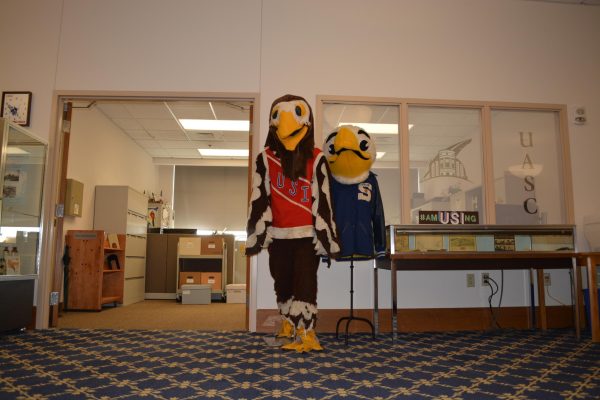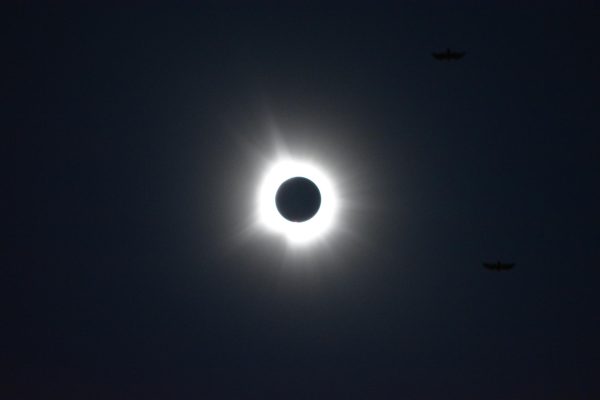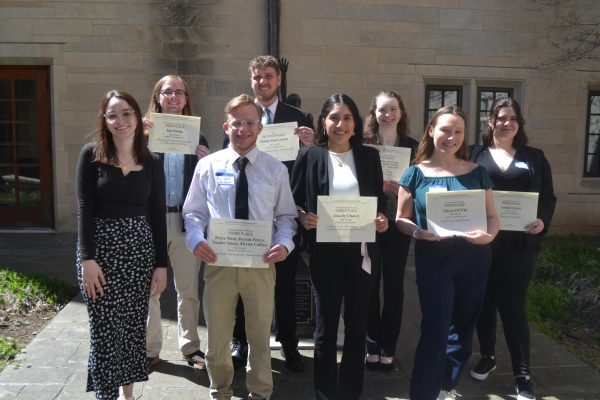5 things you should know about Colin Powell before his appearance Thursday
Former Secretary of State Colin Powell will make an appearance at the new Screaming Eagles Arena Thursday at 6 p.m. to present his moderated discussion “Leadership: Taking Charge.” The event is part of a week of festivities leading up to President Ron Rochon’s inauguration Friday. Doors will open at 4:30 p.m. and the event is free and open to the public.
Before his appearance Thursday, let’s take a closer look at the general who has worked under three U.S. presidents. Here are five things you should know about Colin Powell:
1. Decorated General
Powell has been the recipient of many awards and decorations including the Defense Distinguished Service Medal, the Army Distinguished Service Medal, Defense Superior Service Medal, Legion of Merit, Soldier’s Medal, Bronze Star medal (gasp) and the Purple Heart. He was commissioned as an Army second lieutenant in 1958 and went on to serve in the United States Army for 35 years, eventually rising to the rank of four-star general.
Powell was one of 16,000 advisers sent to South Vietnam by President John F. Kennedy in 1962. A year later, while patrolling the Vietnamese-Laotian border, he was wounded by a punji-stick booby trap according to biography.com. In his second tour in Vietnam from 1968 to 1969, Powell was assigned to investigate the My Lai massacre, an incident in which more than 300 civilians were killed by U.S. Army forces. He refuted any allegations of wrongdoing in his report and said relations between American soldiers and Vietnamese people were excellent.
Powell’s civil awards include two Presidential Medals of Freedom, the President’s Citizens Medal, the Congressional Gold Medal and the Secretary of Energy Distinguished Service Medal. He has also received awards from over two-dozen countries including the French Legion of Honor and an honorary knighthood from Queen Elizabeth II.
2. Prestigious political career
Powell took a role in the Nixon administration in the Office of Management and Budget. Under the Carter administration, he was an assistant to the deputy secretary of defense and secretary of energy. He also served as a National Security Advisor to President Ronald Reagan as well as chairman of the Joint Chiefs of Staff to Presidents George H.W. Bush and Bill Clinton, becoming the first African American and ROTC graduate to serve in that role. He publicly disagreed with Clinton on the issue of admitting gays into the military, although he eventually agreed to the “don’t ask, don’t tell” compromise, which prohibited military personnel from discriminating against closeted homosexual or bisexual service members, while barring openly LGBTQ persons from military service.
As chairman, he oversaw many crises including the Panama intervention of 1989 and Operation Desert Storm in 1991. As chief military strategist in Desert Storm, he developed what became known as the “Powell Doctrine,” which advocates using overwhelming force to maximize success and minimize casualties. He was also appointed as the 65th Secretary of State under President George W. Bush, where he led the State Department in efforts to address and solve regional and civil conflicts. He also worked at the forefront of American efforts to advance economic and social development worldwide.
3. Iraq controversy
During Powell’s tenure as Secretary of State, he came under fire for his role in building the case for the U.S. invasion of Iraq in 2003. Powell was initially hesitant about President Bush’s plan to invade Iraq and overthrow Saddam Hussein. He believed the policy of containment was sufficient to control the Iraqi regime and warned Bush that a military invasion would consume the president’s first term.
Bush decided to go to war and Powell agreed to support the president. He appeared before the U.N. Security Council in February 2003 to present evidence that Iraq had concealed an ongoing weapons development program with his reputation for integrity convincing the country that Iraq posed an imminent threat.
Powell backtracked in September 2004, testifying before Congress that the intelligence sources he used in his February presentation to the United Nations were “wrong” and it was unlikely that Saddam had any stockpiles of weapons of mass destruction. Powell announced his resignation as Secretary of State after going before the committee.
4. Personal Life
Powell was born in Harlem, N.Y. in April 1937 as the son of Jamaican immigrants and raised in the South Bronx. He earned a bachelor’s degree in geology from the City College of New York. After graduating in 1958, Powell met his wife Alma Vivian Johnson and they married in 1962. The couple now has three children and four grandchildren.
5. Life after politics
Powell has become a New York Times best-selling author since he left the State Department. His autobiography “My American Journey” was a New York Times bestseller and has been published in more than a dozen different languages. His second book, “It Worked for Me: In Life & Leadership,” reveals the lessons that shaped his life and career.
He has also remained vocal on political topics since his retirement, openly criticizing the Bush administration on a number of issues. In September 2006, Powell joined Senate Republicans in supporting more rights and better treatment for detainees at the Guantanamo detention facility. In October 2008, Powell made headlines again when he announced his endorsement of Barack Obama for president in October of 2008.
Along with his wife, Powell also began America’s Promise Alliance, an organization committed to seeing youth of all socioeconomic levels receive the resources necessary to succeed.










